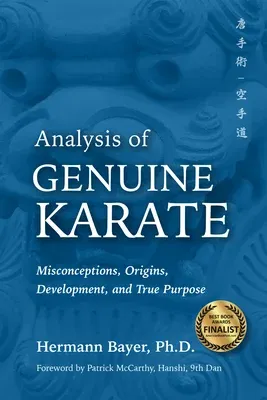Genuine karate is an Okinawan martial art for self-defense; its
ongoing globalization has jeopardized its inherent effectiveness.
"The changes made to karate in mainland Japan and in America have
altered karate so intrinsically that it can no longer claim to be
genuine karate."
Dr. Hermann Bayer, Ph.D., examines how Japan re-interpreted Okinawan
karate to create its own unique style of karate-do, and how Japanese and
American changes resulted in a modern karate-sport business.
Practitioners of karate are often confused, misguided, and even led to
believe that karate is just karate--this is far from the truth.
Practitioners need a clear understanding of what their training can
offer them. This can only be achieved by understanding karate's true
purpose and by discerning misconceptions from facts.
Contents include
- Okinawan karate's "principle of never changing kata".
- Karate as an Okinawan cultural heritage.
- Socio-cultural arguments to preserve Okinawa karate--as is.
- Japan--the karate reproducing country.
- Karate or Karate-do?
- The business of karate, karate-do, and karate-sport.
- Scientific proof of a peaceful karate mind.
- The laws of physics reveal weaknesses when kata are changed.
This substantially researched work makes a compelling case for the
socio-cultural and historic arguments to conserve genuine Okinawan
karate. Supported by historical facts, scientific analysis, and public
records, Dr. Bayer reveals, for all to see, the complex evolution of
karate and the unsettled claims made upon it by the various
stake-holders.

